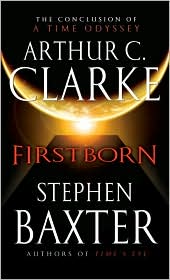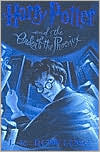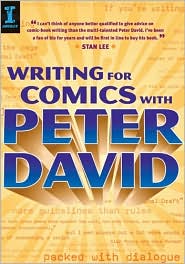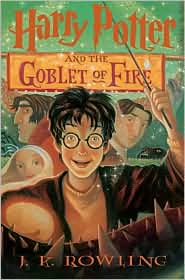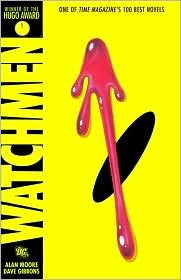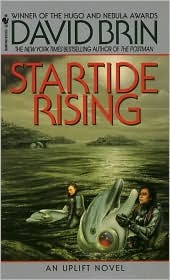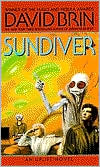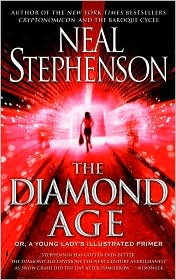One of my daily routines is to read “Noble Intent,” a journal on Ars Technica. They cover all types of scientific endeavors, but over the time it has been around they have published a large portion of evolution related posts. It stems form some of the pro-intelligent design shenanigans that occurred over the past few years. They also cover many things about human initiated global climate change, also due to rampant denial. It’s kind of their way of making a point and fighting for what the writers think is right. I enjoy it, but I digress.
I read several entries in the journal recently, and combined with the Florman and Attwood books I started thinking about my point of view. In the first Journal entry the author indicates that “Myopia is such a human trait.” I find that interesting and insulting. Humans are probably the most far sighted organisms that live on this planet. But the true question is, is it myopia if you can see forward and do nothing, can see forward and do some things but not everything, or if you can’t see forward at all. Well people can’t do everything. That’s essentially removing humans from the environment. Short of killing everyone, we can’t realistically do that. One must realize that all the organisms are opportunistic and short sighted in trying to reproduce the most and spread the farthest. Algal blooms and zebra muscles are opportunistic to the point of destroying ecosystems. That’s not far sightedness. Humans are less opportunistic than any other organism on Earth. But arguably we aren’t doing as much as reason indicates we should. But that’s not what I wanted to talk about. I wanted to talk about a point of view.
Shoot my K is empty. Hmm. Might have to break out the whiskey.
Anyway, both sides of this argument have a tendency to separate nature and man with this artificial barrier. I always get a chuckle when I hear people say, “these are organic tomatoes,” or some such thing. I should hope so. Silicon based tomatoes would probably be hard on the digestion. Yes yes they are talking about natural fertilizers rather than processed chemicals, but one must also realize that crude oil is organic and arsenic is completely natural. These are artificial terms placed on things that make people feel better about categorizing. Essentially one type of system adds processed chemicals and oil byproducts to plants and the other throws shit on them. You choose which you prefer, but remember, the spinach fiasco seems to have been caused by unwanted “organic” fertilizer.
So, what am I getting at here. People like to think of us as different from nature. Maybe it is my engineering side coming out, but I don’t see that there is a separation. We are part of nature. Us studying the universe is the universe studying itself. We aren’t fucking nature up. Nature is fucking itself up. We are just the primary component causing all the turmoil. Humans are natural. In their current state they are natural. They may not be doing smart things, but they are natural. We are what evolution and nature have made us.
Essentially it all boils down to information storage. For billions of years information storage and reproduction took place primarily in DNA. This information storage technique allowed it to change slowly over time to allow organisms to carry the most important information forward and still be able to change to the environment: genetic evolution. There was always a drive to make the best organism for a situation. Sometimes that meant the one that could adapt to changes the fastest. That’s where it happened. Humans and our ancestors came about. I’m not sure how, but the DNA was slowly augmented by another information storage and reproduction system, the advanced brain and communication techniques. It requires both, because a brain with no way to communicate information to others is a dead end street. This allows information and techniques to be passed down the line of progeny just like DNA. It also allows it to grow and change, much faster than DNA can, learning evolution.
Mmmm. Whiskey.
So what good is this learning evolution. It can’t change our bodies in any manner. What it does do is allow humans to take a common animal ability to an extreme. Bats nest in caves and trees, hermit crabs take empty shells as homes, and birds build nests. All of that is programmed from genetic evolution, GE. Humans use their far faster learning evolution, LE, to perform similar feats of environmental change and item manipulation. We pick up a sharp flake of rock and use it to skin an animal. We use a mass on a stick to apply blunt force to objects like nails. We cover ourselves with items that allow us to survive sub-freezing temperatures for long periods, and we use a spiral piece of metal to make holes in objects.
What nature created was a creature with conscious control over its evolution. The human became a modular animal. It became a powerful and flexible central control system that could consciously evolve modular components that it could attach and detach in order to do specific tasks. By attaching a shovel it can dig a hole effectively, a car attachment provides rapid ground transit, and a plane attachment provides even faster air transport. Essentially all of these creations, from hair curlers, to homes, to nuclear power plants are LE extensions of the human.
The problem is that our LE method of advancement far outstrips the ability of most other organisms t keep up. In fact only the fastest reproducing organisms can keep up using GE. That of course would be bacteria and viruses. That's why our LE, medical advancement, has such a tough time keeping up with them. Maybe now that we are beginning to understand the GE method of information transfer we can get an advantage.
Essentially all the technology that is lamented as a prison is a part of ourselves. It is not a prison any more than the lobster’s shell is a prison. But we have an advantage. We can control out evolution and change directions if we see we are headed to folly. It is no use to blame technology, because it is merely an extension of ourselves. The only thing we can do is recognize our mistakes and change the course of our evolution. The problem is that we are still the GE organism at the center of the LE mechanisms. We still are drawn by the lure of the quick gain and growth. Myopic growth is a basic component of all biological organisms. Our only hope is that our LE changes and teaches us fast enough to overcome that biological shortcoming. From the looks of the last link from the Noble Intent journal, education, the heart of LE, appears to be our best hope.
It’s sleepy time now. Mmmm. Whiskey.






